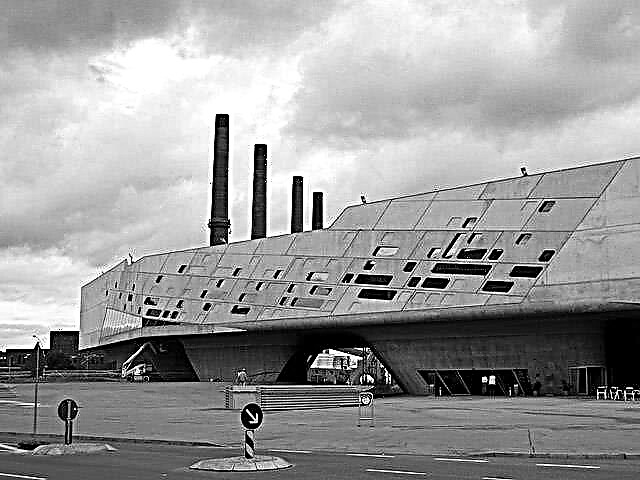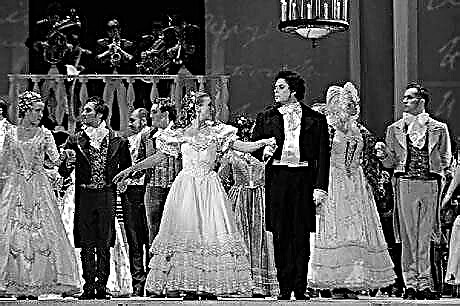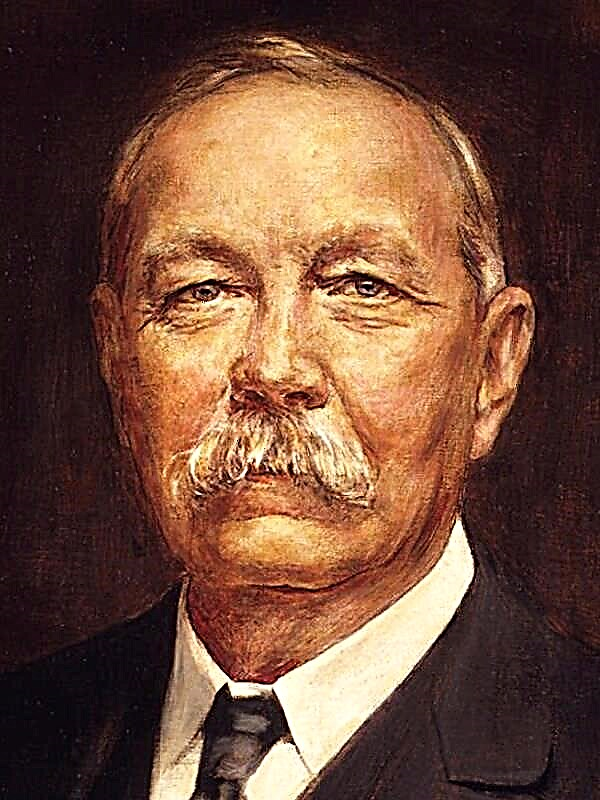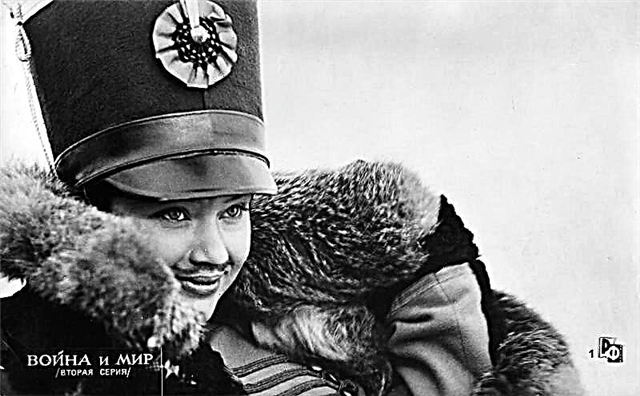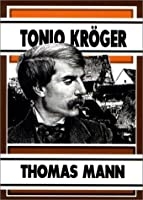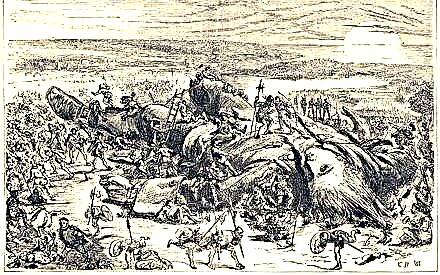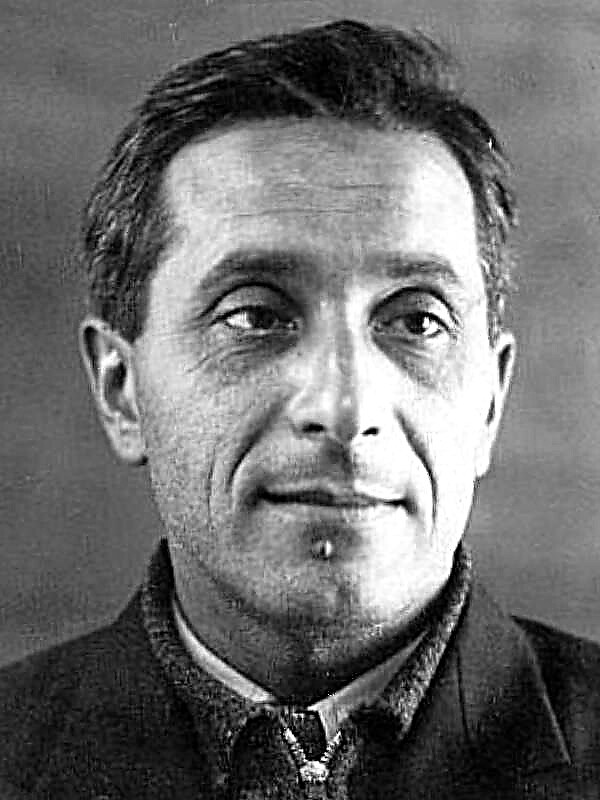Learn from the creator of Amazon
In 1994, only a handful of people understood the opportunities that opened up with the advent of the Internet. At that time, Bezos dreamed of creating a universal online store, which would become the main link between the manufacturer and the consumer.
Impressed by the rapid development of the Internet, Jeff quit his well-paid job to devote himself entirely to the idea. He moved to Seattle and created Amazon in his own garage. But it was not so simple. For starters, I had to confine myself to only a few categories of goods. After a thorough analysis, Jeff chose books.
This was followed by an unsurpassed success story that brilliantly reflects the unique way of thinking of Jeff Bezos.
Everything for the client!
Amazon's goal is to take customer focus to a higher level in every industry around the world.
The store acquired new features and functions that people initially considered useless. But later, realizing all the advantages, they enjoyed using them with pleasure.
Example. Despite publisher protests, Amazon has been equipped with the feedback feature, independent information that complements publisher annotations. The ability to sell used goods was also perceived negatively, but it turned out that this was exactly what consumers wanted.
Amazon is constantly working on optimizing logistics systems to expedite the delivery of goods. The complexity of Amazon's work is hidden from the view of site users.
Jeff Bezos quickly realized one huge advantage of e-commerce: customer behavior is very easy to analyze. And now Amazon is working on it.
Example. Each time you enter the site, a list of recommended products pops up based on a previous visit to the site. This function increases sales, as customers discover products that they did not know about.
Jeff Bezos is obsessed with customer focus. Its goal - Amazon should become "the most customer-oriented company on Earth."
The worst thing for company employees is to receive an e-mail from Jeff Bezos with a complaint from the client and his questions.
Less is better: excessive frugality
This slogan is not very appropriate for Amazon, but is suitable for companies starting in the garage and trying to survive with minimal profitability. Amazon is characterized by frugality, which some consider excessive. However, Jeff Bezos is convinced that restrictions provoke innovation, and frugality allows you to focus on the most important things (for example, customer satisfaction).
Amazon employees pay parking fees on their own; at work they are not provided with free snacks; on business trips, you have to sleep in double rooms, and managers themselves pay for plane tickets. Overall, Amazon's corporate culture is harsh and highly competitive. The company's motto: “You can work long, hard and efficiently, and you can’t choose only two out of three options at Amazon.
Example. At Amazon sales centers, workers wind up to 30 kilometers every day in search of products. However, they are very silent - they can be fired for talking with each other.
Amazon has repeatedly hired tens of thousands of temporary workers, especially in high season (for example, before Christmas), and then fired. Amazon's approach is simple: centers open in economically weak areas where they are welcome because they believe this will improve the local economic situation. And Amazon just takes the opportunity to hire cheap labor and fires employees at the end of the season, realizing that the company no longer needs them.
Unusual but effective: a unique corporate culture
Amazon's corporate culture is very distinctive.
Example. No one makes presentations at internal meetings. Instead, employees present their ideas on six pages that everyone, even Bezos himself, reads in complete silence, which takes up to 30 minutes. Bezos believes that this is how employees carefully think through their ideas, and presenting them on paper is more convincing.
Amazon's specialty is the rule of two pizzas: each team in the company can be fed just two pizzas. Bezos is confident that meetings of large groups are unproductive, so the company is divided into autonomous units, in each of which no more than ten employees. Groups compete with each other for resources. All of them must solve complex problems, helping consumers become happier.
Once Bezos said: "Communication is terrible!". Instead of useless brainstorming sessions with too many participants, small groups have been created in the company that develop innovative ideas. Mobility is the main advantage of small groups. They quickly bring ideas to life, completing the task - to benefit the client.
At meetings at Amazon, all employees must validate their points. There is no room for chatter about customers - massive Excel tables with indicators relevant to the whole company are important. Everything is measured by numbers - from customer behavior to marketing effectiveness. Amazon adheres to the principle of "numbers do not lie."
Not tomorrow, but in 20 years: the importance of long-term thinking
According to Bezos, Amazon’s greatest strength is its desire to remain misunderstood. This also applies to the business model. Many say that Amazon suffers small but frequent losses. However, the company thinks in the long run and calmly suffers losses if they help achieve future goals.
Amazon invested in infrastructure for a long time, and many investors were worried: the company suffered losses. But huge investments have allowed Amazon to strengthen its position as a universal online store, which means earning easy money in the future.
In order for customers to be happy, it is necessary to play an honest game, says Bezos. Although it costs a lot of money in the short term, it does increase customer loyalty, which will ultimately bring profit to the company.
Example. When e-books began to gain popularity, Bezos decided to sell them for $ 9.99. Amazon purchased copies of e-books at a price equal to printed counterparts, and the company lost about $ 5 on one book sold. Bezos did this because he was convinced that sooner or later publishers would have to lower prices, and wanted to make Amazon the best e-book market. Thanks to this, the company earned the first billion dollars and ensured Kindle sensational success.
Amazon differs from other companies in its long-term orientation. From the very beginning, Bezos was obsessed with a grandiose vision and knew that it would take decades to realize it.
Beyond Amazon: Bezos Private Projects
Bezos' private projects also confirm his long-term thinking.
He finances the construction of watches in Texas that will last 10,000 years with virtually no maintenance. According to Danny Hills, inventor of the Clock of the Long Now watch, it needs to be wound up only once a year. The clock will move once every 100 years, and the cuckoo will appear once every millennium. If everything goes according to plan, this creation will be the main attraction. People will feel a broader time perspective and support the idea of long-term thinking. This will change our view of time - just as photographs of the Earth from space give a new understanding of space.
The most famous Bezos project is the Blue Origin space program for the development of technologies by which flights into space will become cheaper and easier. Gradually, Blue Origin technologies will evolve, allowing you to make more and more flights. The long-term goal of the project is the constant presence of man in space.
As a child, Jeff dreamed of flying into space. This motivated him to become rich.
Learn from mistakes: reward for leaders
During the dot-com crisis in the late 1990s, Amazon lost hundreds of millions of dollars by buying startups on the brink of collapse. This knocked the company down, but she learned a lesson: she became more careful in acquisitions, and also began to follow the do-it-yourself principle. Amazon began to produce products, rather than acquiring them from others.
The company has a bold approach: it is not afraid to take up something without studying it lengthwise and crosswise, even if it leads to errors. Bezos prefers this approach to over analysis, because of which the possibilities of something new that might work are often overlooked.
Bezos is a true figure. This is evidenced by his decision to found Amazon. Most other people would save their well-paid job instead of opening their online bookstore across the country with their own and parental savings.
Bezos always encouraged employees to be prepared for failure and to try something new. Sometimes this led to significant failures. But in many other cases, risks brought brilliant innovation.
Example. Amazon Auctions, established in 1999, did not hold out against eBay. The project was closed after a few months. But the one-click order function was a very successful innovation.
Bezos even established the Just Do It award for employees who have implemented outstanding projects on their own initiative, preferably outside their own field of activity. The award is also given to those whose attempt failed, if in the process they showed remarkable resolve and courage.
On the basis of frugality, Amazon does not award cash awards, but gives the winners a pair of huge Nike sneakers belonging to basketball players.
More than you think: unexpected offers
As soon as Amazon managed to become an online bookstore, Bezos began selling music, films, electronic devices and toys. He then provided third-party organizations with the opportunity to sell their products, both used and new, to Amazon. Finally, thanks to the Kindle, Amazon has become a central figure in the world of e-books.
But most people do not know that Amazon offers a number of additional services, such as the Amazon Web Services (AWS) cloud operating system, which has transformed Amazon from a purely commercial enterprise into a combination of a store and a technology company.
Many organizations associated with the US government, NASA, and the CIA bought disk space and computing power through AWS. The service is the basis for many online startups and provides servers for applications such as Instagram and Netflix.
With the advent of AWS, Amazon’s reputation has changed: all of a sudden, its customers are not only readers, but also startup developers who buy terabytes of space for their projects.
Kindle also shows that Amazon is able to recognize and meet new customer needs, far ahead of the competition. Bezos very early realized that customers would need a device to read the increasingly popular e-books. Amazon began to work in this direction and created the Kindle. In November 2007, the first generation Kindle was released, sold out within six hours (and so on for five months). Kindle is still a bestseller. In 2011, Amazon announced the sale of more than a million devices.
The path to the Store of everything: there is always something to strive for
After 20 years of continuous development, Amazon is approaching the initial concept of the Store of everything. But Bezos is not going to sit back and rest on his laurels.
Many more problems need to be resolved before a long-term vision is realized. Bezos wants Amazon products to be delivered on the day of order, and the company has its own fleet (with trucks) and a grocery business (Amazon Fresh). He wants to turn Amazon into a publishing company and a media company, build an Amazon film studio, create Amazon smartphones and televisions, open branches in new countries, and possibly even provide 3D printing services.
Bezos does not believe in limitations: there is nothing impossible for Amazon - any product can be sold on the Internet. You can still think up a lot, discover a lot, and most people still don’t know what the Internet is capable of. For Bezos, everything is just beginning.
Jeff's unique thinking has made Amazon the way we know it today: a company that is constantly evolving, rewriting the rules every day and never stands still. After many exhausting years, it has become, in fact, the Store of everything. Its founder thinks that it is only at the beginning of the path, and meanwhile, the company's turnover is already $ 75 billion per year.
The most important thing
Customer focus, long-term thinking and the desire to develop and improve - these are the qualities that distinguish Amazon. The unsurpassed success of the company is due to the thinking of its founder, Jeff Bezos. He is distinguished by his willingness to take risks and try new, as well as perspective thinking, an example of which are his other projects: his own space program and hours for 10,000 years.
Review your meeting format. Try to make decisions only on the basis of reliable facts or ask employees to express ideas in writing. If they think through their thoughts so deeply that they can fill out six pages, and the rest get to know them in complete silence and take ideas seriously, the discussion will be more sensible than in most companies.
"The rule of two pizzas." Two pizzas should be enough for one team. An organization should be built up of many small groups that are able to organize themselves and compete with each other. They should boldly develop ideas and remain motivated to solve customer problems. Try to break your company into small independent groups and evaluate them by the frequency with which they produce something new.

